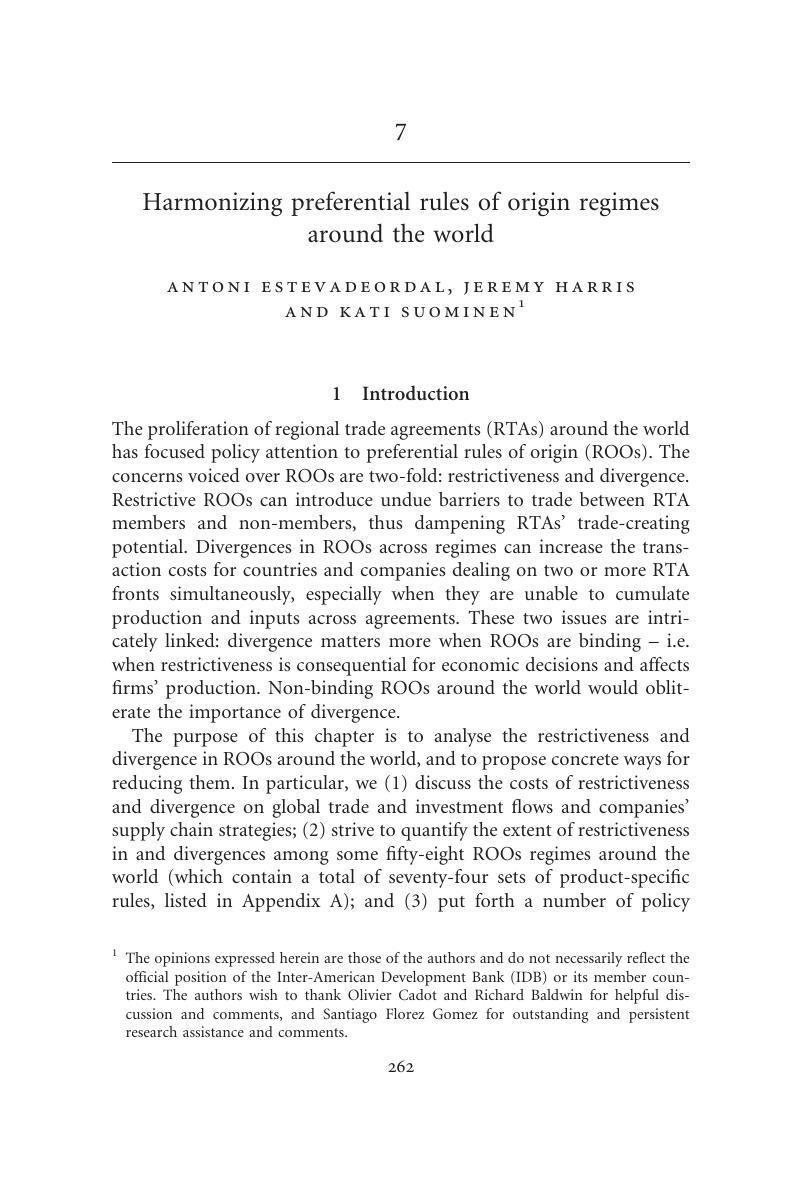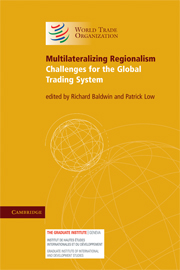Book contents
- Frontmatter
- Contents
- List of contributors
- Foreword
- Acknowledgements
- Introduction
- PART I Background to Regionalism
- PART II Multilateralization: Prospects and Past Experience
- PART III Multilateralization: Sectors and Themes
- 6 Services provisions in regional trade agreements: stumbling blocks or building blocks for multilateral liberalization?
- 7 Harmonizing preferential rules of origin regimes around the world
- Comment
- 8 Legal avenues to ‘multilateralizing regionalism’: beyond Article XXIV
- PART IV Multilateralization: Regional Perspectives
- Index
- References
7 - Harmonizing preferential rules of origin regimes around the world
Published online by Cambridge University Press: 05 March 2012
- Frontmatter
- Contents
- List of contributors
- Foreword
- Acknowledgements
- Introduction
- PART I Background to Regionalism
- PART II Multilateralization: Prospects and Past Experience
- PART III Multilateralization: Sectors and Themes
- 6 Services provisions in regional trade agreements: stumbling blocks or building blocks for multilateral liberalization?
- 7 Harmonizing preferential rules of origin regimes around the world
- Comment
- 8 Legal avenues to ‘multilateralizing regionalism’: beyond Article XXIV
- PART IV Multilateralization: Regional Perspectives
- Index
- References
Summary

- Type
- Chapter
- Information
- Multilateralizing RegionalismChallenges for the Global Trading System, pp. 262 - 363Publisher: Cambridge University PressPrint publication year: 2009
References
- 11
- Cited by



